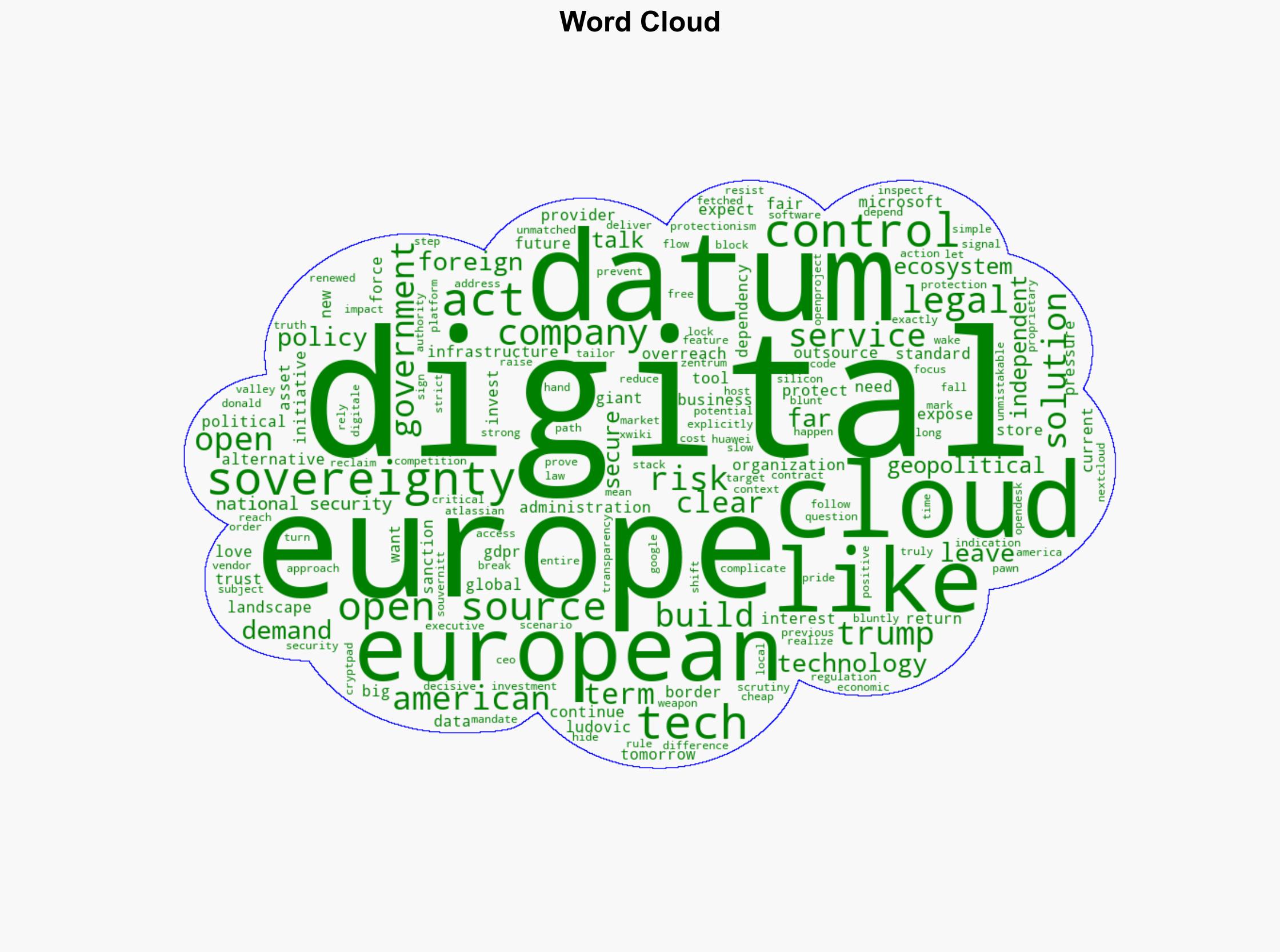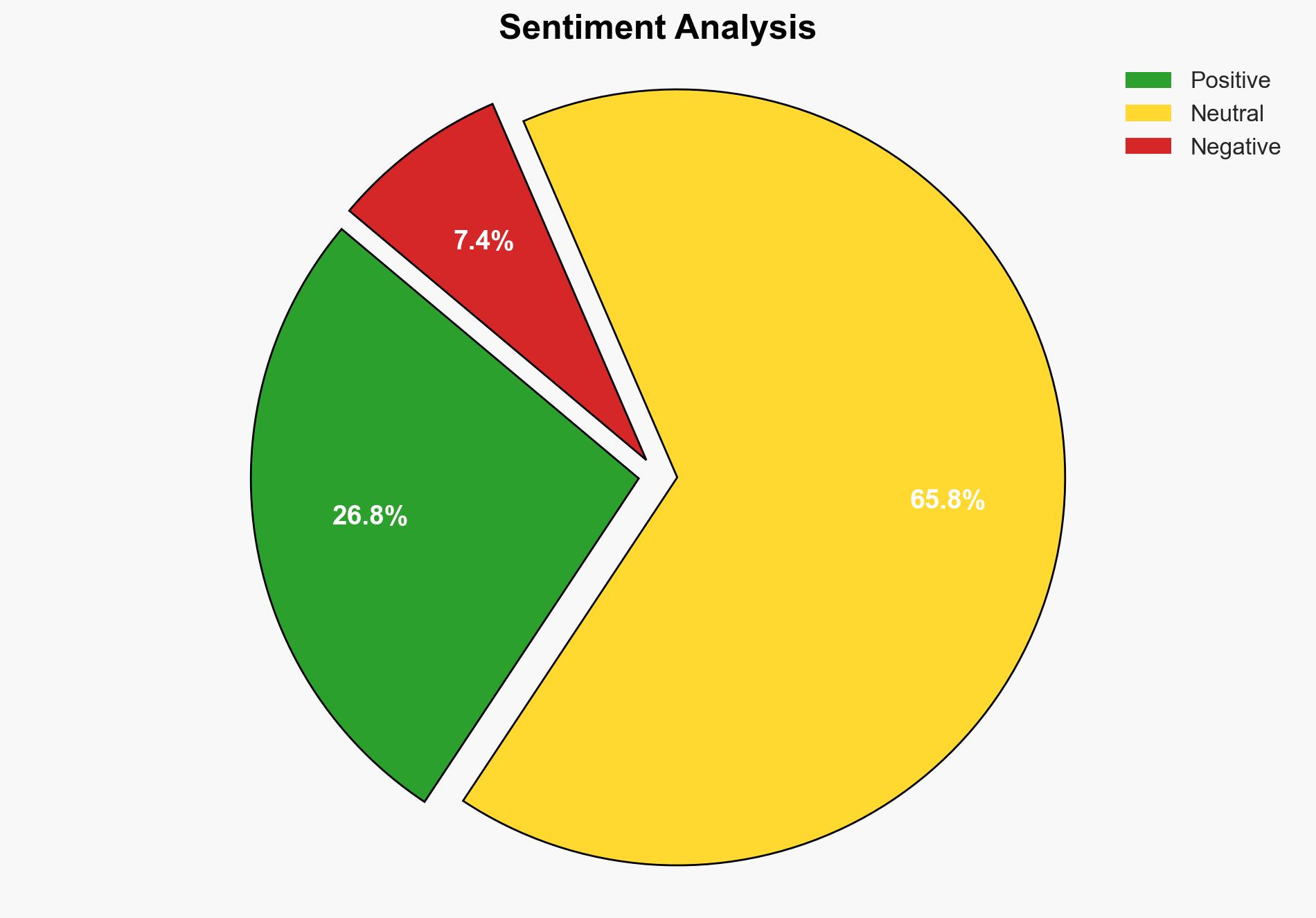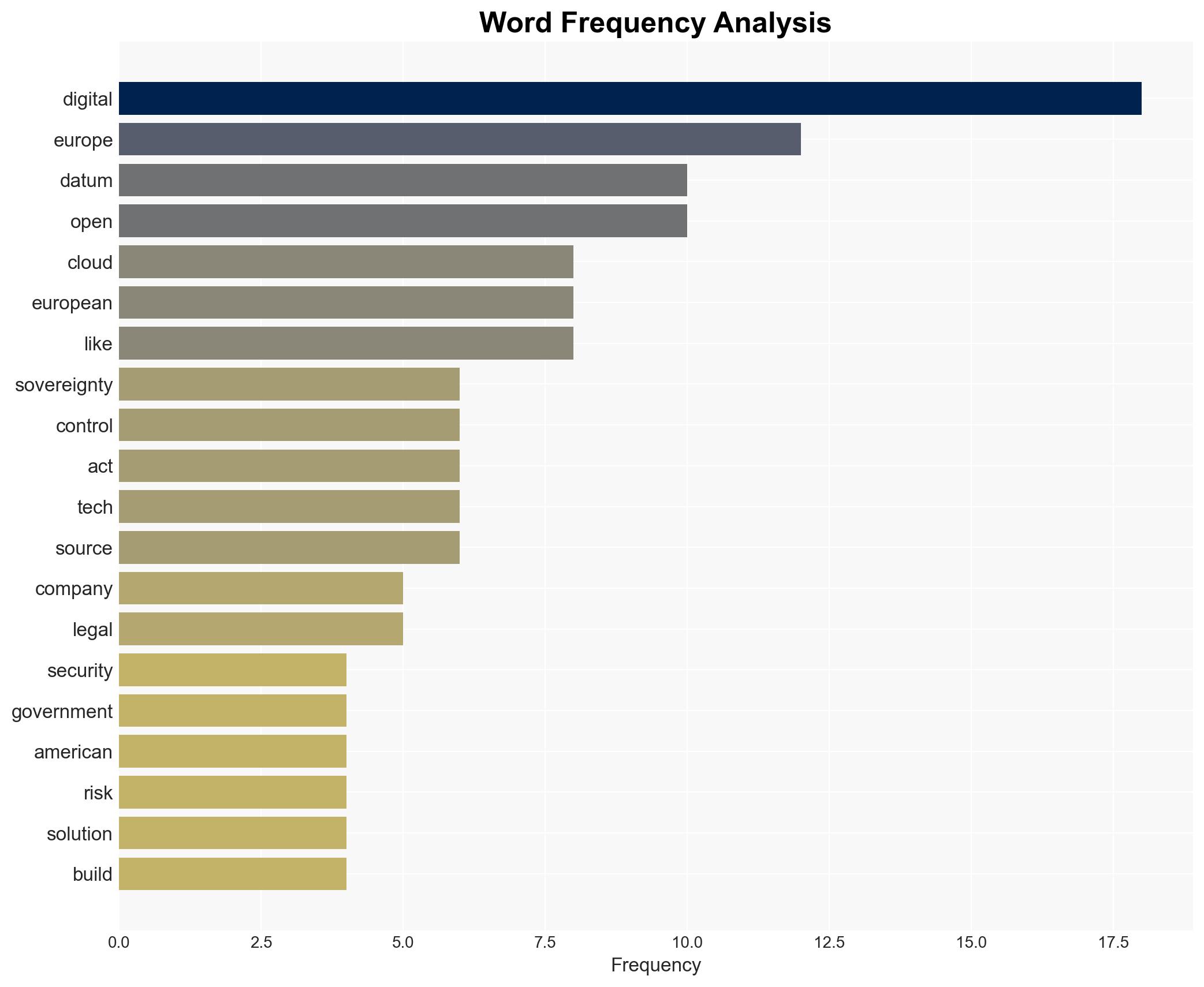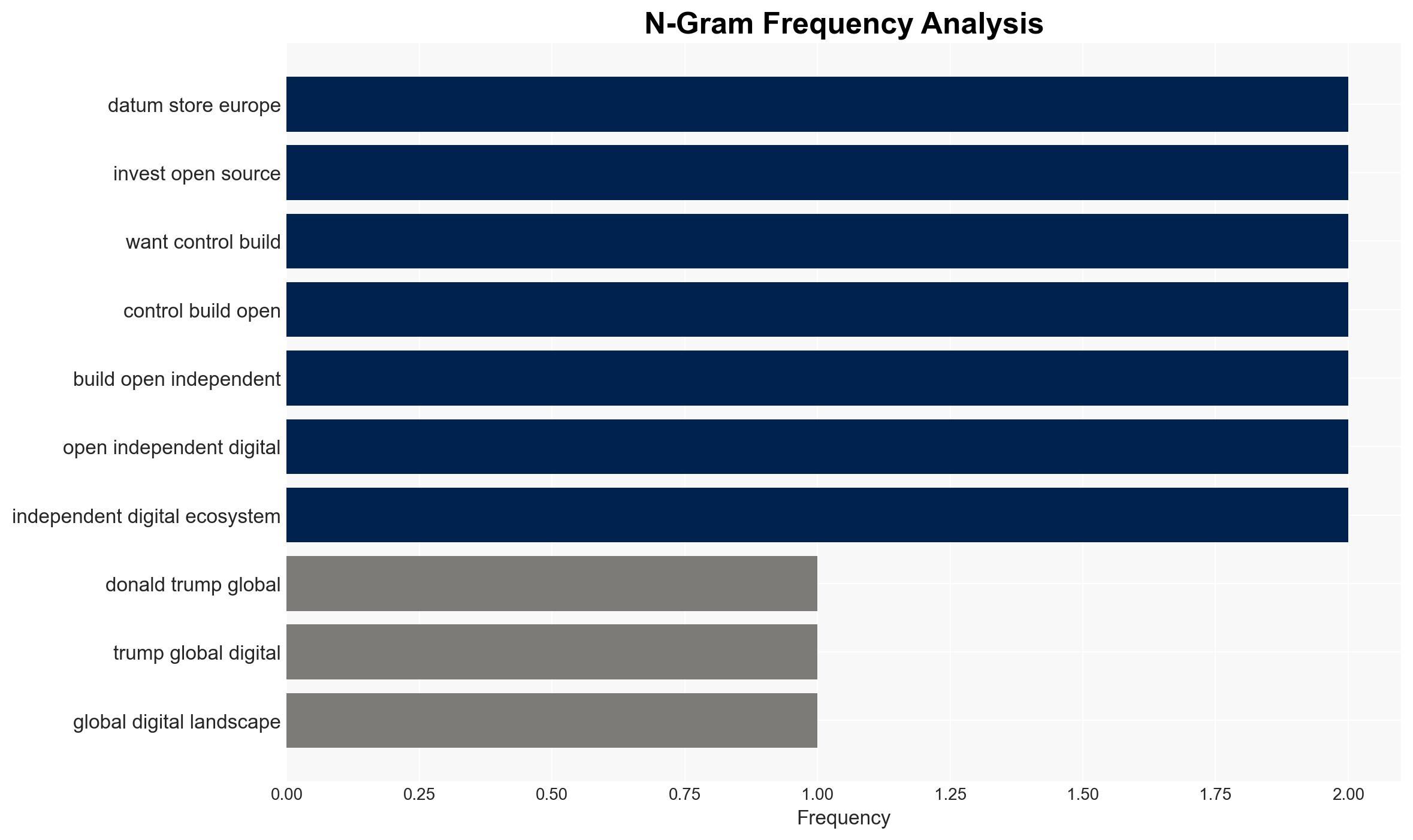How Trump’s second term just made digital sovereignty a European priority – Xwiki.com
Published on: 2025-04-08
Intelligence Report: How Trump’s Second Term Just Made Digital Sovereignty a European Priority – Xwiki.com
1. BLUF (Bottom Line Up Front)
The return of Donald Trump to the presidency has intensified the focus on digital sovereignty in Europe. The potential for renewed economic protectionism and national security measures could impact European data governance. European reliance on American technology companies poses risks to data privacy and sovereignty, necessitating strategic shifts towards local solutions and open-source technologies.
2. Detailed Analysis
The following structured analytic techniques have been applied for this analysis:
General Analysis
The global digital landscape is experiencing a shift due to potential policy changes under Donald Trump’s administration. The Cloud Act, which allows U.S. authorities to demand data from American companies stored abroad, has raised concerns about data sovereignty in Europe. European businesses and governments face legal scrutiny and political pressure, highlighting the need for digital sovereignty. Initiatives like the Digital Markets Act and Digital Services Act aim to protect European data, but decisive action is required to reduce dependency on foreign tech giants.
3. Implications and Strategic Risks
The reliance on American technology providers exposes European data to foreign legal demands, posing risks to national security and economic interests. The potential for geopolitical tensions to influence data access and control could destabilize regional stability. The use of cloud services as geopolitical tools, similar to sanctions, underscores the critical vulnerability of current dependencies.
4. Recommendations and Outlook
Recommendations:
- Invest in local cloud solutions and open-source technologies to enhance digital sovereignty.
- Mandate open standards to prevent vendor lock-in and protect national security interests.
- Encourage European organizations to build independent digital ecosystems not subject to foreign legal overreach.
Outlook:
Best-case scenario: Europe successfully implements digital sovereignty measures, reducing dependency on foreign tech giants and enhancing data protection.
Worst-case scenario: Continued reliance on American technology leads to increased geopolitical tensions and compromised data sovereignty.
Most likely outcome: Gradual progress towards digital sovereignty with mixed success in reducing foreign dependency.
5. Key Individuals and Entities
The report mentions significant individuals and organizations, including Donald Trump and Ludovic. European organizations and technology providers like Microsoft, Google, Atlassian, and initiatives such as Opendesk, Zentrum Digitale Souveränität, Xwiki, CryptPad, OpenProject, and Nextcloud are highlighted as key entities in the context of digital sovereignty.





